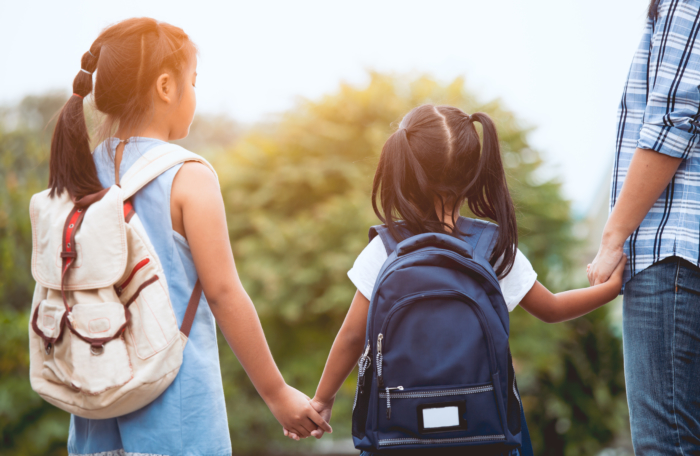Of course parents have a role in public education
On September 28, Virginia gubernatorial candidate Terry McAuliffe said in a debate, “I’m not going to let parents come into schools and actually take books out and make their own decision. I don’t think parents should be telling schools what they should teach.”
Before that debate, McAuliffe had led Republican opponent Glenn Youngkin in every poll but one. The day after the debate, the Youngkin campaign released its first ad featuring McAuliffe’s quote. A month later, Youngkin was leading in all polls. He won, with parental authority in education being a defining issue of the race.
The issue wasn’t new for Virginians. In his term as governor, McAuliffe had vetoed a bill to alert parents when sexually explicit material was being taught to their children. This year, he supported COVID-19 vaccination and mask mandates for all schools.
The issue wasn’t primarily about books or education theory. It was about the nature of public school governance.
Broadly speaking, some people believe public schools should be more democratic than bureaucratic in nature. That is, they largely should reflect the views of local families and taxpayers and be responsive to parents. Another camp generally views public schools as “government schools.” That is, they exist as a sort of government bureaucracy, the purpose of which is to disseminate whatever content the experts in the field determine is best.
McAuliffe expressed the latter view, and he paid for it.
In practice, public schools tend to be a mix of both views, and the question is how far do they tip to one side or the other. McAuliffe refused to acknowledge that a balance exists, and he picked the wrong side of the scale.
A huge amount of trust is necessary for public education to work. When parents put their kids on the bus or drop them at the school door, they are exercising tremendous trust, built in part on the understanding that they have some say in what happens inside the building. If they are told otherwise, trust immediately breaks down.
A USA Today/Suffolk poll in October found that 50% of voters said parents should have more of an influence over school curricula, while 39% said school boards should. Independents (57%) and Republicans (79%) favored parents, but Democrats favored school boards 70%-16%.
According to exit polls, Youngkin won parents of school-aged children 52%-48%. Just the year before, Joe Biden won that same group of Virginians by 10 points. (Biden also won non-parents by 15 points, and Youngkin won them by 50%-49%.)
Polls before the election showed education surging to become a top 3 issue for voters in the final month. It wasn’t the only reason Youngkin won. But education probably tipped the election to Youngkin — because he expressed the view that the “public” in “public schools” meant citizens, not government.
Youngkin’s victory was not just a revolt of parents. Americans who don’t have children in public schools have developed a sense of dissatisfaction with public education too. There’s a broad sense of powerlessness that comes through in public polling going back decades.
In Gallup polling, the public hasn’t reported having a “great deal” or “quite a lot” of confidence in public schools since 1987. Confidence in public schools has hovered in the mid-to-low 30s since 2010. Most Americans (54%) this year say they’re dissatisfied with what’s taught in K-12 public schools.
A FOX News poll last month found that 73% of Americans said they were very concerned about what was being taught in public schools. Again, that’s not new. The figure was 85% in a FOX poll in 2013.
The sense of powerlessness against the bureaucracy was reflected in polling about school closures during COVID, when parents were given limited options. In March, when roughly a third of students had no access to in-person schooling, 79% of parents said they wanted school to be in person.
That feeling of powerlessness is a big reason why school choice polls so well. Parents educational want options, and the general public agrees they should have options.
In October, already broad support for school choice rose as parents’ role in education became a national political issue. The national tracking poll by EdChoice found that 70% of Americans support Education Savings Accounts, and 80% of parents do.
Current controversies such as COVID-19 closures, mask mandates and Critical Race Theory did not create the demand that public schools be more responsive to parental and community concerns. That demand was already there. They made it stronger and broader.
The harder politicians work to keep parents (and citizens) on the outside of the system, the less parents and citizens will trust the system. Lower trust fuels greater demands for alternatives. Politicians who think they’re defending public schools by building walls to keep parents and citizens out are really undermining them by alienating the people they are intended to serve — and who have the power of the vote.



